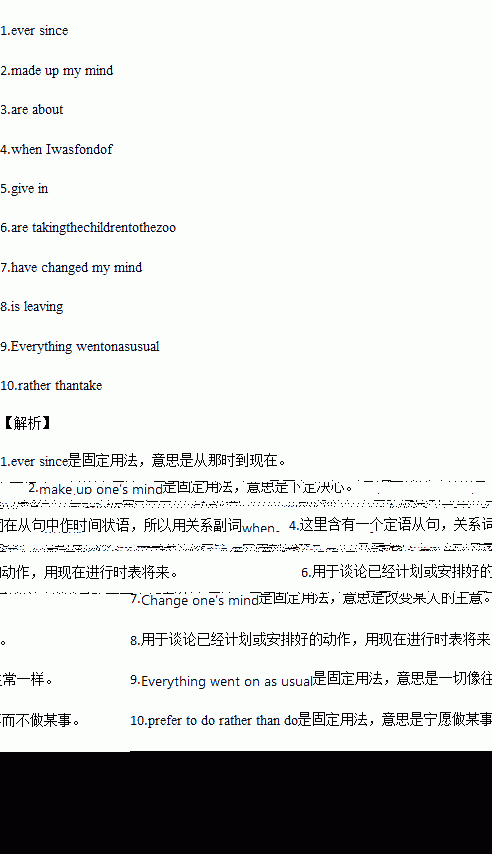题目内容
1.他在圣诞节生病了,此后就一直病着。(词数不限)
He fell ill at Christmas and has been ill ________________.
2.由于上次考试我没有及格,我下定决心今后要更努力学习。(词数不限)
Because I failed in the last exam, I ________________ to study harder.
3.Don't you ________________(关心,在乎) losing your job? (词数不限)
4.There was a time ________________ ________________ ________________ ________________ ________________(我喜欢) reading books on the Internet. (fond)
5.He is a strong-willed person, so he would rather die than ________________ ________________ (屈服).
6.他们星期天要带孩子们去动物园。
They ________________ ________________ ________________ ________________ ________________ ________________ ________________ on Sunday.
7.初识布赖恩时,我不喜欢他,但是(现在)我改变了看法
When I first met Bryan I didn't like him, but I ________________. (change)
8.他两小时后将赴伦敦。
He ________________ ________________ for London in two hours.
9.________________ ________________ ________________ ________________ ________________(一切像往常一样) as if nothing had happened. (usual)
10.我宁愿步行也不愿乘公共汽车。
I prefer to walk ________________ ________________ ________________ a bus.
 七星图书口算速算天天练系列答案
七星图书口算速算天天练系列答案 初中学业考试导与练系列答案
初中学业考试导与练系列答案
